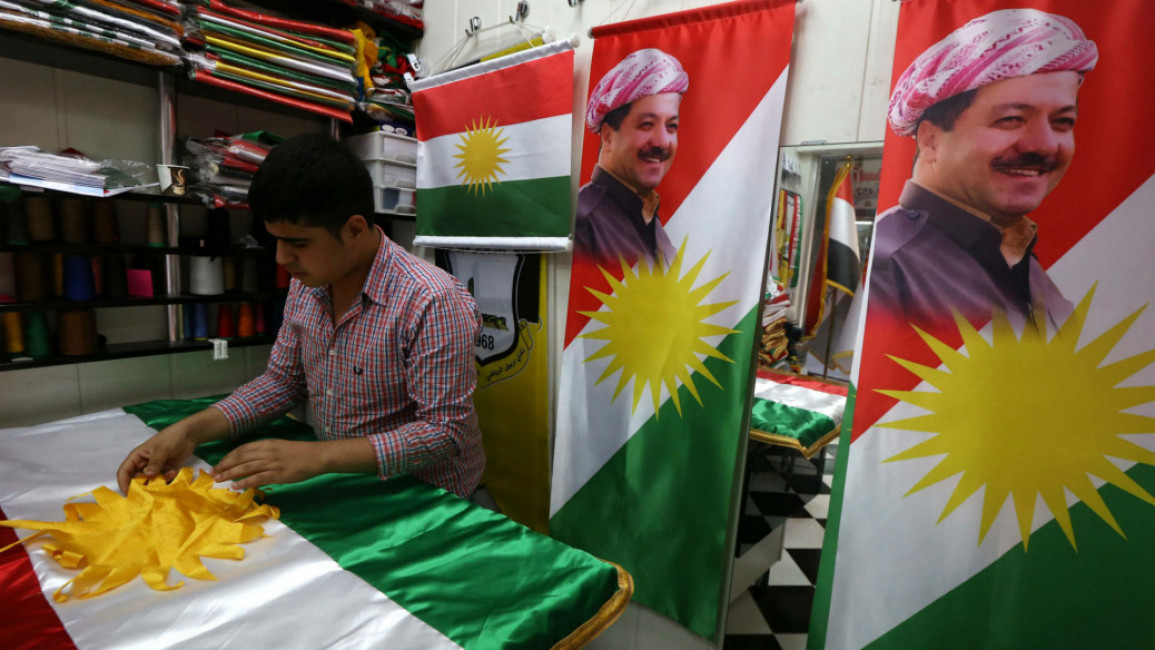KDP says 'unconstitutionality' is why it will boycott Iraqi Kurdistan region's parliamentary elections
In a decisive move, the ruling Kurdistan Democratic Party (KDP) announced on Monday its refusal to partake in the upcoming parliamentary elections in the Iraqi Kurdistan region, scheduled for 10 June.
This decision was made in protest against what the party deems as "illegal" and "unconstitutional" alterations to the region's electoral framework by Iraq's Federal Supreme Court, specifically the elimination of minority quota seats.
The KDP's political bureau firmly expressed its stance against participating in an electoral process it views as fundamentally flawed and imposed.
On 23 February, Iraq's Supreme Federal Court ruled that the Kurdistan region parliament's minority quota seats are "unconstitutional", stating that the region's parliament consists of 100 lawmakers, thus terminating the existence of eleven quota seats for the Turkmen, Christians, and Armenian minorities in the region that have been enacted in the legislature since 1992.
The court's recent decisions stemmed from lawsuits filed by politicians from the Patriotic Union of Kurdistan PUK— a rival party to the KDP—challenging the constitutionality of the Kurdish region's election law.
Labelling the court's decision as part of a broader trend of unconstitutional rulings against the Kurdistan Region over the past four years, the KDP criticised the move as a "blatant violation of the region's constitutional rights and an encroachment on its autonomy."
The party emphasised its commitment to upholding the democratic principles and federal system enshrined in Iraq's constitution.
Furthermore, the KDP underscored the importance of fair electoral laws that ensure the representation of all segments of Kurdish society. The removal of minority seats, according to the party, contradicts the will of the people and undermines the integrity of the electoral process.
Last week, political parties representing the Christian and Turkmen communities in the Iraqi Kurdistan Region announced they would boycott the elections.
We are concerned by KDP’s announcement to boycott the Iraqi Kurdistan Region elections. We urge the Government of Iraq & the Kurdistan Regional Government to ensure that elections are free, fair, transparent, & credible. All the people of Iraqi Kurdistan Region should have a…
— Ambassador Alina L. Romanowski (@USAmbIraq) March 18, 2024
Citing provisions of the Iraqi constitution recognizing the Kurdistan Region's federal status and the supremacy of its laws in disputes, the KDP argued against the implementation of an unconstitutional ruling and the imposition of a system without the consent of the region's populace.
Additionally, the KDP warned about potential repercussions, including withdrawal from the political process in Baghdad, should the State Administration Coalition fail to fulfil its constitutional obligations and honour political agreements within the current Iraqi government.
The 10 June election, set to take place amidst these controversies, represents a departure from past electoral practices in the Kurdistan Region. With fewer legislative seats, a revamped constituency system, and federal oversight due to internal Kurdish disputes, the election poses significant challenges to the region's political landscape.
Meanwhile, Iraq's Independent Electoral High Commission (IHEC) remains undeterred by the KDP's boycott, asserting its commitment to the scheduled election date of 10 June. Despite the challenges posed by the KDP's refusal to participate, IHEC reassures the public that preparations for the parliamentary elections are proceeding as planned.
On her part, Alina L. Romanowski, the United States Ambassador to Iraq, expressed her concern in a post on the X platform, previously known as Twitter. She urged the Iraqi government and the Kurdistan Regional Government (KRG) "to ensure that elections are free, fair, transparent, and credible."
"All the people of Iraqi Kurdistan Region should have a voice in determining their future," she added.
The KRG is a coalition among the two main ruling and rival parties: KDP and PUK. The KDP, led by the Barzani family, dominates Erbil and Duhok provinces, while the PUK, led by the Talabani family, rules Sulaimaniyah and Halabja provinces.
The PUK politburo convened late Monday to discuss the KDP's decision and is yet to announce its formal stance on the issue.
Both parties have separate peshmerga forces and security and intelligence agencies. They fought an internal conflict from 1994 until 1998, in which thousands of fighters and innocent civilians from both sides were killed, wounded, and displaced.
The parliamentary election, held in September 2018, witnessed a low turnout of 57% and was marred by alleged large-scale voter fraud by the two main rival parties, the Kurdistan Democratic Party (KDP) and the Patriotic Union of Kurdistan (PUK).
The KDP is often accused by the PUK and the opposition parties of manipulating the minority's quota to claim the majority in the parliament. In all past elections held in the region, all minority seats were allocated to Erbil province, while there are minority populations in other Kurdish provinces.
The minorities refuted those claims and stressed that 99% of Turkmen, Chaldeans, Syriacs, Assyrians, and Armenians reside in the provinces of Erbil and Dohuk.



